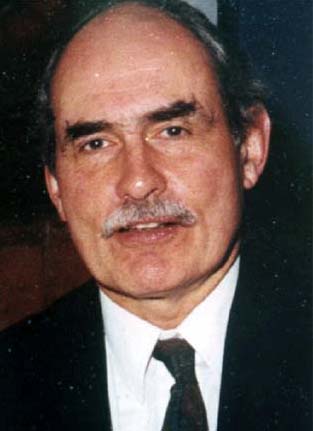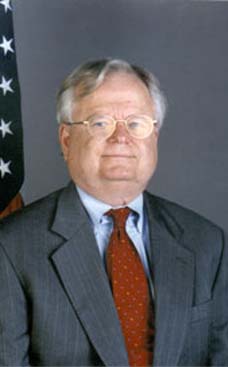
In an assessment that rings familiar to anyone who has read almost any recent accounts of the Clinton presidency, the administration is portrayed as moving from crisis to crisis, and implementing policies towards individual countries that did not necessarily translate to a coherent regional policy. In one example, the U.S. sold F-16 jets to Chile and then negotiated a bilateral trade agreement, while Argentina merely received a designation as an "extra-NATO" ally. Palmer is critical of the Clinton administration's progress on the main objectives as set forth in the historic Summit of the Americas meeting in Miami. But the administration did make headway on the important goal of deepening democratic practice in the region. And Clinton can hardly be blamed for the region's failure to achieve other objectives, such as sustained economic growth and eliminating poverty and discrimination, which has more to do with how Latin American economies are managed than with any single set of U.S. policies. Despite all this, the Clinton administration did achieve notable foreign policy successes in Latin America: the passage of NAFTA, the creation of the Summit of the Americas process, the deft resolution of the Mexican peso crisis, and the brokered solution of the Peru-Ecuador border war come immediately to mind. Other examples, such as the restoration of President Aristide to Haiti in 1994, have not weathered the passage of time very well. Palmer concludes that the sum of Clinton policy in Latin America was less than its parts, and accuses it of squandering the opportunity to effect significant change in Latin America following the end of the Cold War. Peru RPCV David Scott Palmer is an international relations professor at Boston University specializing in Latin America.
David Scott Palmer writes "U.S. Relations with Latin America during the Clinton Years: Opportunities Lost or Opportunities Squandered?"
U.S. Relations with Latin America
U.S. Relations with Latin America during the Clinton Years: Opportunities Lost or Opportunities Squandered?
David Scott Palmer
University Press of Florida
Did President Bill Clinton offer better Latin American policies than George W. Bush? Or did he go from crisis to crisis?
BY DANIEL P. ERIKSON
The relationship between the U.S. and Latin America today suffers from widespread unease and discontent, and blame is shared by all sides. The relentless U.S. foreign policy focus on the Middle East, the diplomatic aftershocks from the war in Iraq, the collapse of the Free Trade Area of the Americas negotiations, Washington's ferociously fought and ultimately futile attempt at immigration reform, and the rise of Venezuelan President Hugo Chavez have all played some part in the severe deterioration that occurred during George W. Bush's presidency. Latin America's most recent election cycle brought to power a number of leaders who are highly skeptical of the United States, including Bolivia's Evo Morales, Ecuador's Rafael Correa, and Nicaragua's Daniel Ortega. Meanwhile, Washington has disappointed some of its closest allies by dragging its feet on new trade agreements with Peru, Colombia, and Panama. Indeed, the sturm und drang of U.S.-Latin American relations under President George W. Bush tempts most Democrats and even some Republicans to look back on Bill Clinton's presidency as a high water mark in hemispheric diplomacy, when America was loved, respected, responsive, and pursued a more thoughtful and strategic approach to its neighbors in Latin America.
RUDELY AWAKENED
Those Latin America specialists who like to reminisce about President Clinton's successful policy towards the region will be rudely awakened by the findings of David Scott Palmer's new book, U.S. Relations with Latin America During the Clinton Years: Opportunities Lost or Opportunities Squandered? (University Press of Florida, 2006, 125 pp.) Palmer, a respected political scientist at Boston University, challenges the view that President Clinton was much more interested and adept in the region than his successor. Instead, Palmer frames the question as whether the Clinton administration lost or squandered its opportunities in Latin America. Palmer describes how Clinton followed the precedents laid out by President George H. W. Bush by continuing to base U.S. policy towards Latin America on the promotion of democracy and support for market oriented economies. The Clinton Administration pushed for debt relief and reorganization, sought trade and investment through the Washington Consensus, pursued a multilateral foreign policy and promoted democracy in countries such as Haiti, Peru, and Mexico.
In Palmer's view, Clinton's approach suffered from a fatal flaw by allowing its foreign policy priorities in the region to be distorted when reacting to international events. In 1993, the killing of 18 U.S. military personnel in Somalia caused President Clinton to withdraw the USS Harlan County from Port au Prince harbor, prolonging violence in Haiti for a year, despite the Governors Island Accord. In 1996, the downing of the Brothers to the Rescue planes caused President Clinton to sign the Helms-Burton legislation, despite earlier resistance to the bill and initial moves towards normalization of relations with Cuba. Finally, in Peru, the Clinton administration allowed the drug war to supersede democracy promotion, until the final ouster of President Alberto Fujimori in 2000.
FROM CRISIS TO CRISIS
In an assessment that rings familiar to anyone who has read almost any recent accounts of the Clinton presidency, the administration is portrayed as moving from crisis to crisis, and implementing policies towards individual countries that did not necessarily translate to a coherent regional policy. In one example, the U.S. sold F-16 jets to Chile and then negotiated a bilateral trade agreement, while Argentina merely received a designation as an "extra-NATO" ally. Palmer is critical of the Clinton administration's progress on the main objectives as set forth in the historic Summit of the Americas meeting in Miami. But the administration did make headway on the important goal of deepening democratic practice in the region. And Clinton can hardly be blamed for the region's failure to achieve other objectives, such as sustained economic growth and eliminating poverty and discrimination, which has more to do with how Latin American economies are managed than with any single set of U.S. policies.
Palmer criticizes the Clinton administration because the principals were largely disengaged from Latin American concerns, but this has been true at least since the 1980s, when President Reagan was captivated by the struggle against communism in Central America. President Clinton's main interests were domestic issues, rather than foreign affairs, and especially not hemispheric affairs. This inattention was exacerbated by the shift to a Republican-controlled Congress in 1995, and Clinton's subsequent failure to receive "fast track" authority for trade promotion. The power shift also caused clashes regarding government appointments, drug policy and Cuba. Finally, the impeachment of the president was sufficient to distract the executive from exerting the necessary leadership to act quickly and decisively on several important Latin American issues.
SUCCESS: NAFTA, SUMMIT OF THE AMERICAS
Despite all this, the Clinton administration did achieve notable foreign policy successes in Latin America: the passage of NAFTA, the creation of the Summit of the Americas process, the deft resolution of the Mexican peso crisis, and the brokered solution of the Peru-Ecuador border war come immediately to mind. Other examples, such as the restoration of President Aristide to Haiti in 1994, have not weathered the passage of time very well. Palmer concludes that the sum of Clinton policy in Latin America was less than its parts, and accuses it of squandering the opportunity to effect significant change in Latin America following the end of the Cold War.
In retrospect, this judgment is overly harsh. Latin America did change significantly after the Cold War, and in most ways for the better. To be sure, Clinton deserves at best partial credit for the positive developments in the region, but they are worth noting. With few exceptions, the region is more democratic, economically integrated, and socially stable than was true before 1990. Even the frequently cited sources of instability, such as the rise of indigenous movements in the Andes, are evidence of the reduced barriers to political participation. Many of Clinton's achievements came from building and expanding on the tenets for Latin American policy that were established by President George H.W. Bush, and one suspects that Clinton's legacy in the region would have fared better if his successor had attempted to continue to build on the existing momentum. Indeed, the current President Bush's most notable success in Latin America - the passage of the Central American Free Trade Agreement - was something that Bill Clinton may well have tried to do if the U.S. Congress had let him. But in many other areas, President Bush chose to change course - cutting off aid to Haiti, turning a blind eye to Argentina's financial crisis, and stoking Hugo Chavez's anti-American tendencies - or deepened Clinton's more misguided policies, such as attempting to tighten the economic screws even further on Cuba's wily Fidel Castro. Add to that the brusque diplomatic style and the enigmatic decision to launch a pre-emptive war in Iraq, and the most surprising aspect of the diplomatic breakdown between the U.S. and Latin America is that it has not been worse.
All of this raises the question of what the next U.S. president should do about Latin America. Palmer's book suggests, and the current international moment confirms, that the moment for a grand overarching U.S. strategy towards Latin America has passed, and will not likely repeat itself anytime soon. Therefore, the question before the next generation of policymakers is how to shape a U.S. policy towards the region that is lean, flexible, realistic, and therefore able to achieve concrete gains in a time of limited government resources and even more scarce presidential attention. President Clinton's experience suggests that a combination of international crises and domestic pressures make this difficult to achieve in the best of times, let alone in the days of tension and turmoil that surely lie ahead for the U.S. in Latin America.
Daniel P. Erikson is senior associate for U.S. policy at the Inter-American Dialogue. This review originally appeared in Cuban Affairs, a quarterly journal published by the Institute for Cuban and Cuban-American Studies at the University of Miami. Republished with permission from Cuban Affairs.



















